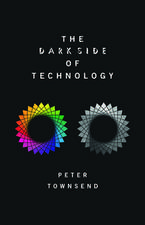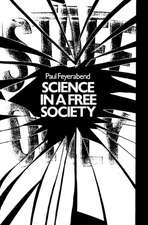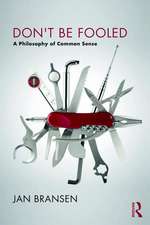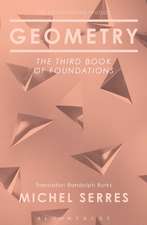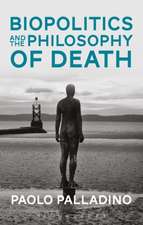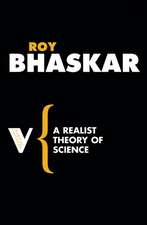How the Cold War Transformed Philosophy of Science: To the Icy Slopes of Logic
Autor George A. Reischen Limba Engleză Paperback – 20 mar 2005
| Toate formatele și edițiile | Preț | Express |
|---|---|---|
| Paperback (1) | 380.49 lei 6-8 săpt. | |
| Cambridge University Press – 20 mar 2005 | 380.49 lei 6-8 săpt. | |
| Hardback (1) | 640.12 lei 6-8 săpt. | |
| Cambridge University Press – 27 mar 2005 | 640.12 lei 6-8 săpt. |
Preț: 380.49 lei
Nou
Puncte Express: 571
Preț estimativ în valută:
72.82€ • 79.07$ • 61.16£
72.82€ • 79.07$ • 61.16£
Carte tipărită la comandă
Livrare economică 22 aprilie-06 mai
Preluare comenzi: 021 569.72.76
Specificații
ISBN-13: 9780521546898
ISBN-10: 0521546893
Pagini: 434
Ilustrații: 8 b/w illus.
Dimensiuni: 152 x 229 x 25 mm
Greutate: 0.57 kg
Ediția:New.
Editura: Cambridge University Press
Colecția Cambridge University Press
Locul publicării:New York, United States
ISBN-10: 0521546893
Pagini: 434
Ilustrații: 8 b/w illus.
Dimensiuni: 152 x 229 x 25 mm
Greutate: 0.57 kg
Ediția:New.
Editura: Cambridge University Press
Colecția Cambridge University Press
Locul publicării:New York, United States
Cuprins
1. An introduction to logical empiricism and the Unity of Science Movement in the Cold War; 2. Otto Neurath, Rudolf Carnap, Charles Morris and Philipp Frank: political philosophers of science; 3. Leftist philosophy of science in America and the reception of logical empiricism in New York City; 4. 'Doomed in advance to defeat'? John Dewey on reductionism, values and the International Encyclopedia of Unified Science; 5. Red philosophy of science: Blumberg, Malisoff, Somerville and early philosophy of science; 6. The view from the left: logical empiricism and radical philosophers; 7. The view from the far left: logical empiricism and communist philosophers; 8. Postwar disillusionment, anti-intellectualism, and the values debate; 9. Horace Kallen's attack on the unity of science; 10. Creeping totalitarianism, creeping scholasticism: Neurath, Frank, and the trouble with semantics; 11. Frank's neurathian crusade: science, enlightenment, and values; 12. 'A very fertile field for investigation': anticollectivism and anticommunism in popular and academic culture; 13. Anticommunism investigations, loyalty oaths, and the wrath of Sidney Hook; 14. Competing programs for postwar philosophy of science; 15. Freedom celebrated: the professional decline of Philipp Frank and the Unity of Science Movement; 16. The marginalization of Charles Morris; 17. Values, axioms and the icy slopes of logic; 18. Professionalism, power and what might have been.
Recenzii
'… extremely interesting and timely … This is a book that will have an impact, both among philosophers, and beyond.' Elliott Sober, Stanford University
'Reisch has written a complex, controversial and richly documented book on the fall of logical empiricism in North America. I highly recommend it.' Philosophy in Review
'Reisch has written a complex, controversial and richly documented book on the fall of logical empiricism in North America. I highly recommend it.' Philosophy in Review
Notă biografică
Descriere
The first in-depth study of the development of philosophy of science during the Cold War.



